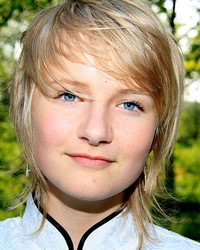Danish in Germany

Photo Source:
Anonymous
|
Send Joshua Project a map of this people group.
|
| People Name: | Danish |
| Country: | Germany |
| 10/40 Window: | No |
| Population: | 22,000 |
| World Population: | 5,349,500 |
| Primary Language: | Danish |
| Primary Religion: | Christianity |
| Christian Adherents: | 85.00 % |
| Evangelicals: | 3.50 % |
| Scripture: | Complete Bible |
| Ministry Resources: | Yes |
| Jesus Film: | Yes |
| Audio Recordings: | Yes |
| People Cluster: | Scandinavian |
| Affinity Bloc: | Eurasian Peoples |
| Progress Level: |
|
Introduction / History
The Danish people are an ethnic group and nationality native to Denmark and a modern nation identified with the country of Denmark. Their ancestors were the Danes who were among the Viking raiders in the 800s and 900s. Danishness (danskhed) is the concept on which contemporary Danish national and ethnic identity is based. The ideology of Danishness emphasizes the notion of "the people" (folk)—a view of Danish society as homogeneous and socially egalitarian. As a concept, det danske folk (the Danish people) played an essential role in 19th-century ethnic nationalism.
Danes live in 20 countries, including Germany. Most of these countries are close to Denmark, but others are further away. Those in Germany are most likely to live in Schleswig, an area very close to Denmark. Some Danes have lived there since the iron age. Prussia and Denmark have fought wars over this region.
What Are Their Lives Like?
Danes in Germany have their own schools, libraries, and churches.
The Danes are known for being cosmopolitan and well-educated. The idea that everyone should have equal opportunities is reflected in the health care system as well as in the educational system. Students can study for free and receive financial support from the state. Health care is provided through their taxes. Danish families are close and most prefer to cook dinner at home together every night. Typically, both parents in a Danish family work full time and are away from home during the day, though they remain involved in their children's school lives and activities.
What Are Their Beliefs?
The Reformation, which originated in the German lands in the early 16th century from the ideas of Martin Luther (1483–1546), had a considerable impact on Denmark. The Danish Reformation started in the mid-1520s. Some Danes wanted access to the Bible in their own language. In 1524, Hans Mikkelsen and Christiern Pedersen translated the New Testament into Danish; it became an instant best-seller. According to Brian Arly Jacobsen, Associate Professor at the University of Copenhagen, Danish Christians today generally see religion as a matter of national identity rather than religious identity. Anyone can attend a service at a church in Denmark, but to hold an event such as a wedding or a funeral, one must be a member of the Danish church and pay the voluntary church tax.
Danes usually hold a secularized version of Christianity. Though Danes hold onto high morals, they often view Christianity as having little to offer in the modern world.
What Are Their Needs?
The biggest concern among the Danes is climate change. Globalization, EU affairs, foreign affairs, and immigration follow behind.
Prayer Points
Please pray for the Danish people in Germany to hunger for a relationship with Jesus Christ, the One who loves them and is sovereign over climate change and other issues that concern them.
Pray for a Holy Spirit-sent revival to Danish churches, giving them a closer relationship with Christ and the blessings of fellowshipping with him each day.
Pray that Danish Christians will soon become a powerful source of salt and light around the world.